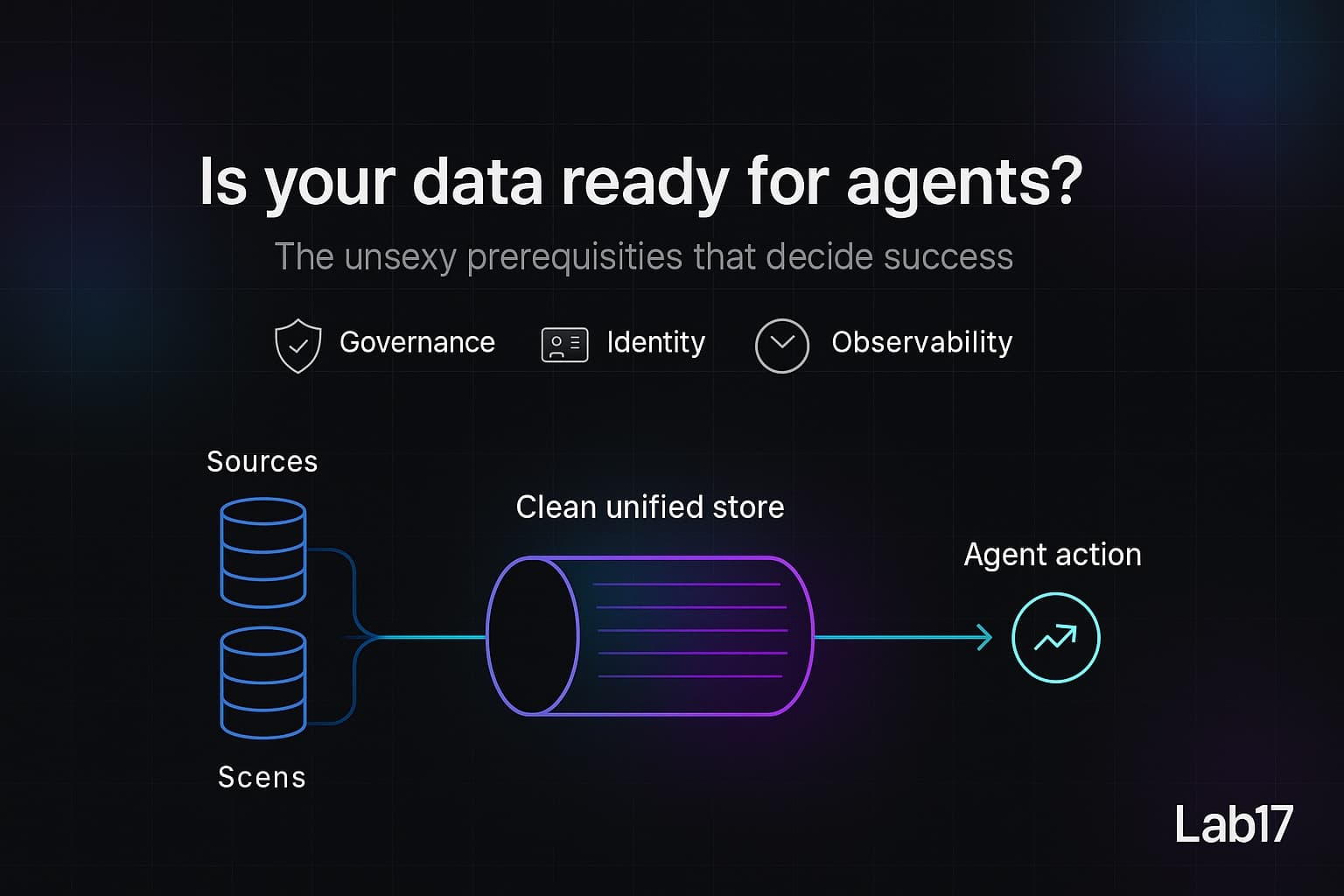Most agent projects fail for a boring reason: the data wasn’t ready. Not the model. Not the prompts. The plumbing. Identity was fuzzy, sources disagreed, or nobody could tell if yesterday’s changes were in the corpus. This is the unglamorous work that decides success.
Why data readiness matters
Agents act. Acting requires the right context and the right permissions—at the right time. If the context is stale or the identity is wrong, an agent can move money, send email, or update records in ways you didn’t intend. That’s how trust is lost.
Identity & access
One person, one identity. If your CRM has three records for the same customer, the agent will pick the wrong one on a bad day. Fix deduplication and enforce unique keys. Use SSO and service accounts for agents; never share human credentials. Scope permissions with least privilege and audit every write.
Source of truth & freshness
Pick sources of truth per entity: customer, order, ticket, document. Sync secondary stores from there. Add freshness guarantees: how long until a change is visible to the agent? Five seconds? One hour? Make it explicit. If retrieval powers the agent, schedule re‑indexing and document it.
Structured context for unstructured tasks
Language is flexible; systems are not. Teach your agent to produce structured outputs (JSON, forms) that downstream tools accept without human cleanup. For RAG, enrich documents with metadata (owner, product, region, version) so you can filter and cite precisely.
Eventing & observability
Emit events for the steps that matter: retrieval, tool calls, writes, handoffs, errors. Correlate them by request ID. Build a tiny dashboard: usage, success, handoff, and latency. When something goes wrong, you need to replay the path in minutes, not days.
Guardrails & governance
Decide the rules before you scale: who can approve new capabilities; how prompts and tools are versioned; how PII is masked and retained; what gets logged and for how long. Write short policies. Agents are powerful; clarity prevents surprises.
A pragmatic readiness checklist
• Identity: unique keys, dedupe rules, and SSO/service accounts for agents.
• Sources of truth: documented per entity; freshness targets written down.
• Retrieval: index scope, metadata schema, and re‑index cadence.
• Writes: least privilege, audit logs, and rollback plan.
• Observability: request IDs, events for key steps, and a simple dashboard.
• Docs: a README for data flows; owners listed by system.
Quick wins while you fix foundations
You don’t need to pause all delivery. Pick read‑only agents first: research briefs, status digests, and enrichment. Use them to pressure‑test retrieval quality and observability. In parallel, clean identity and choose sources of truth.
When the plumbing is ready, flip to write‑enabled slices with clear rollback. Momentum plus foundations—that’s the winning combination.
